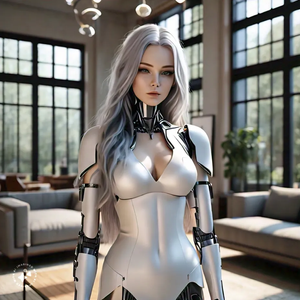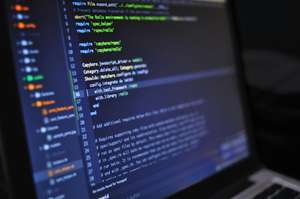
How to create your own recipes with Artificial Intelligence.
Exploring Culinary Innovation with AI: Revolutionizing Recipe Creation
Cooking is both an art and a science, and with the rise of Artificial Intelligence (AI), chefs and home cooks alike are seeking new methods to boost creativity, efficiency, and flavor in the kitchen. AI-powered tools and algorithms enable new methods to create, improve, and customize recipes, therefore altering the culinary environment. Let’s look at how artificial intelligence (AI) is transforming recipe development and enabling gourmets to experiment with new flavors and approaches.
1: Recipe Creation and Inspiration.
AI searches enormous databases of recipes, ingredients, and flavor profiles to come up with fresh and innovative cuisine concepts.
- Ingredient Pairing: AI algorithms recommend ingredient pairings based on their flavor compatibility, nutritional value, and culinary history.
- Cultural Fusion: AI investigates cross-cultural culinary influences and recommends fusion dishes including a variety of tastes and components.
- Seasonal and Local Products: AI suggests meals based on seasonal availability and locally sourced ingredients, emphasizing sustainability and freshness.
2: Personalized Recipe Recommendation.
AI-enabled platforms tailor meal suggestions based on dietary choices, allergies, and nutritional goals.
- Dietary restrictions: AI adjusts recipes to meet gluten-free, vegan, or low-carb diets, assuring inclusion and adaption.
- Nutritional Analysis: Artificial intelligence delivers nutritional information for recipes, such as calorie counts, macronutrient breakdowns, and vitamin levels, to help you make educated eating decisions.
3: Ingredient Substitution and Optimization
AI recommends ingredient swaps and tweaks to improve meal flavor, texture, and nutritional value.
- Substitution Recommendations: AI recommends substitutes depending on availability, dietary preferences, or allergy concerns to ensure flexibility and adaptability.
- Optimized Cooking Techniques: AI suggests cooking periods and temperatures that enhance ingredient tastes, textures, and nutrient retention.
####4. Flavor Profile and Enhancements
AI examines taste profiles and sensory qualities to enhance recipe development and culinary inventiveness.
- Flavor Matching: AI recommends spices, herbs, and seasonings to match component tastes and increase dish complexity.
- Texture and Mouthfeel: Artificial intelligence algorithms optimize ingredient proportions and cooking techniques to create the desired texture, mouthfeel, and culinary aesthetics.
5. Cooking Tips and Techniques
AI-powered culinary assistants include step-by-step directions, recipe suggestions, and real-time kitchen assistance.
- Recipe Execution: AI leads users through recipe steps, time intervals, and cooking methods to ensure accuracy and consistency.
- Interactive Cooking: AI recognizes voice instructions and offers hands-free help, allowing chefs to concentrate on culinary creativity and experimentation.
6. Crowdsourced Recipe Review and Feedback
AI incorporates user feedback to enhance recipe recommendations and culinary experiences.
- User Ratings and Reviews: Artificial intelligence analyzes user comments to discover popular recipes, taste trends, and cooking styles, promoting community participation and culinary inspiration.
- Recipe Customization: AI tailors recipes based on user comments, tastes, and regional differences, encouraging cultural variety and culinary adaptability.
7: Continuous Learning and Culinary Innovation
AI-powered recipe platforms change in reaction to user interactions, always learning and adapting to different tastes, preferences, and cooking trends.
- Recipe modifications: AI adapts recipes depending on user input, ingredient availability, and seasonal changes to ensure their relevance and uniqueness.
- Innovative culinary Challenges: AI-powered platforms organize culinary challenges and contests, allowing users to experiment with new cuisines and express themselves artistically.
Conclusion
To summarize, artificial intelligence is transforming recipe development by providing innovative tools, tailored recommendations, and interactive culinary experiences that enable chefs and home cooks to experiment with new flavors, methods, and cultural influences in the kitchen. Accept AI’s promise for culinary innovation and set off on a voyage of inspiration, exploration, and culinary expertise. With AI as your culinary companion, the art of recipe creation becomes more accessible, dynamic, and engaging than ever.





